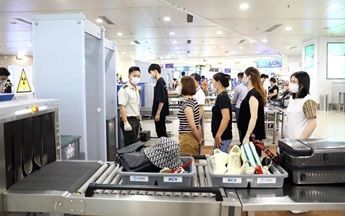In a significant move to enhance security and streamline the passenger experience, Vietnam’s airports are preparing to implement biometric authentication systems for check-in at all major terminals from November.
This innovative step marks a substantial investment in modernising airport operations and underscores Vietnam’s commitment to providing a safe and efficient travel environment for both domestic and international passengers.
The plan, led by the Vietnam Aviation Authority (VAA), will see biometric authentication technology introduced across all major airports in Vietnam. The scope of the project is expansive, covering key facilities in Hanoi, Ho Chi Minh City, Da Nang, and other major airports across the country.
Under this new system, technology will replace traditional methods of authentication, such as paper documents and physical identification checks. The adoption of biometric authentication at Vietnam’s airports promises, first and foremost, heightened security.
Biometric data, such as facial recognition and fingerprint capture, is difficult to forge, making it a potent tool in preventing identity fraud and other security breaches.
Furthermore, the biometric system is designed incorporating cameras and eID card readers to expedite passenger processing. With just a quick facial scan, electronic ID card holders can access check-in counters, pass through security checkpoints, and board their flights more efficiently.
Pilots at other airports in Vietnam are already underway. While biometric authentication offers numerous benefits, it also raises concerns about privacy and data security. The VAA is acutely aware of these issues and has put stringent measures in place to protect passengers’ biometric data. Personal information will be encrypted, stored securely, and subject to strict data protection regulations.
Local Vietnamese media is reporting that from 2nd August CAAV installed level 2 electronic ID authentication for domestic travel passengers at all airports in the country.








